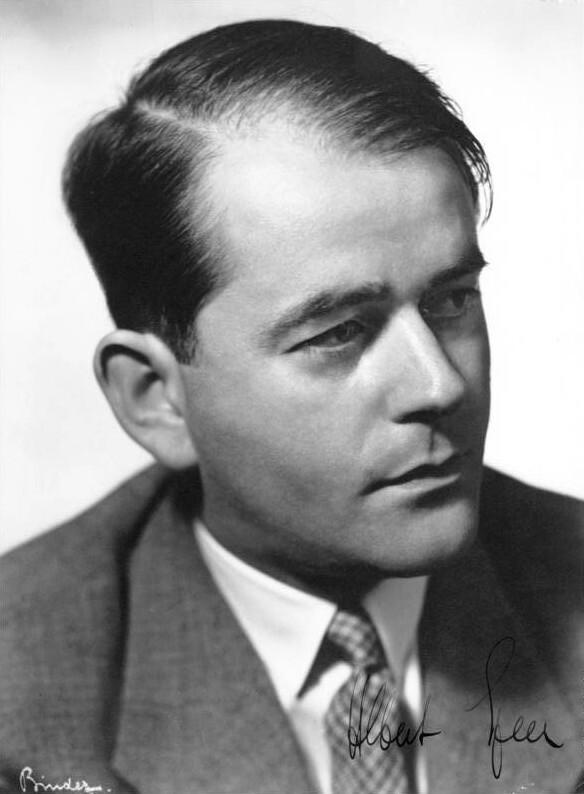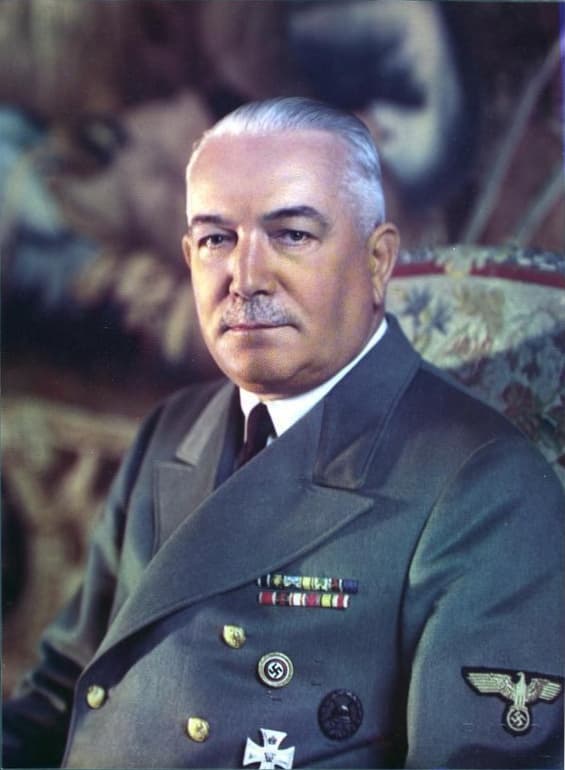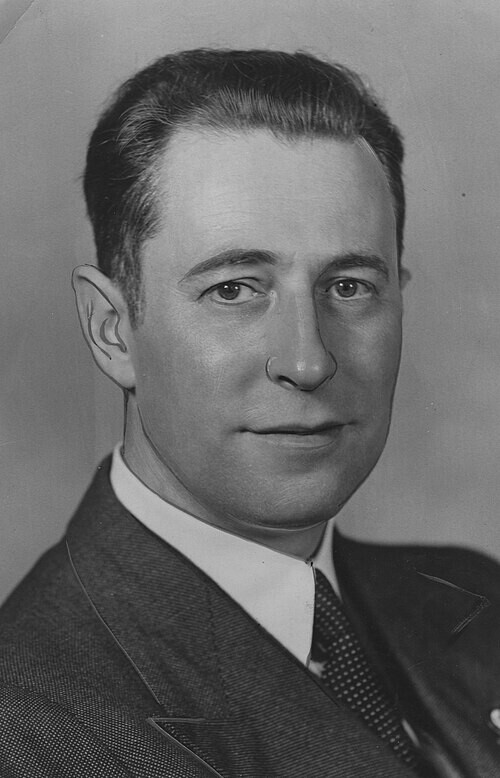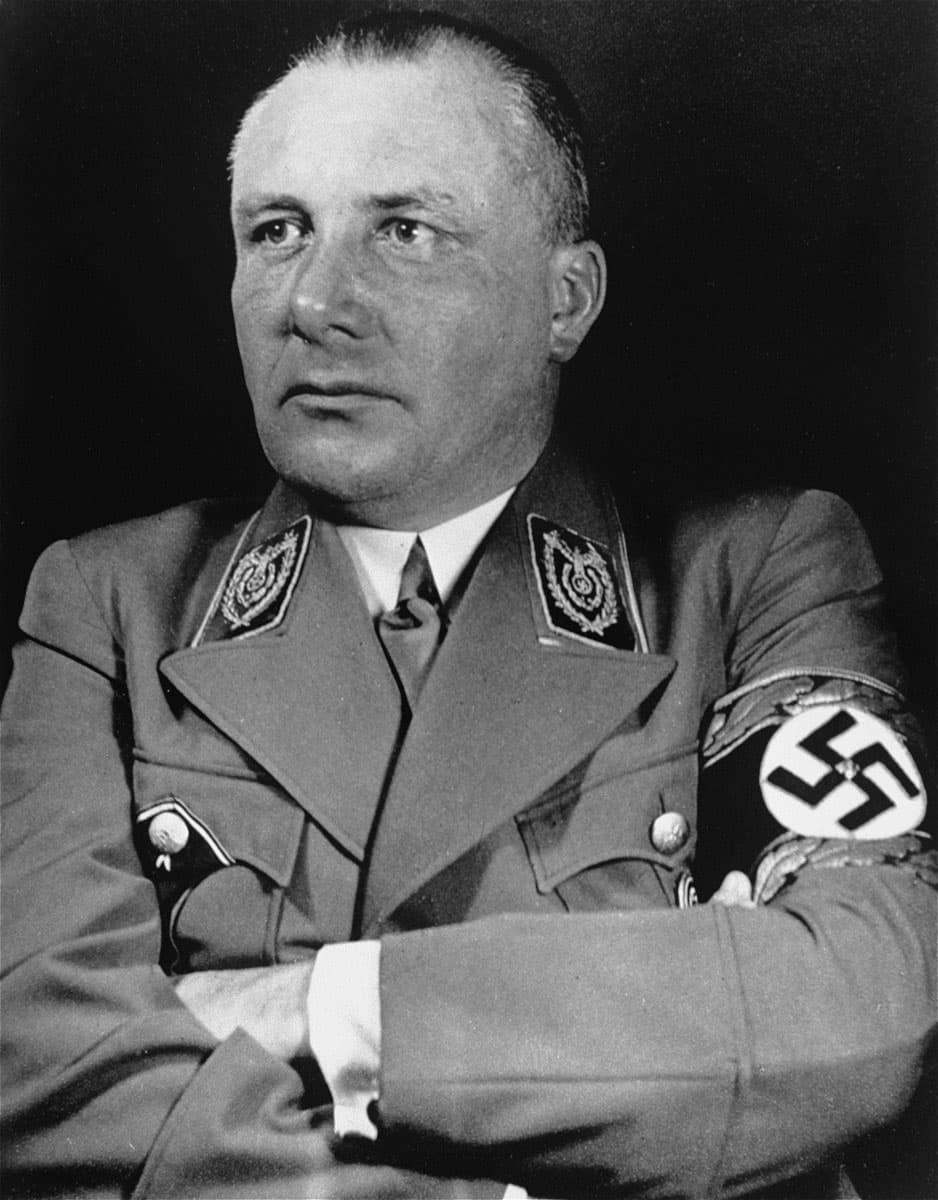Albert Speer: NOT GUILTY ON COUNTS ONE AND TWO; GUILTY ON COUNTS THREE AND FOUR
(Justice Francis Biddle)

THE DEFENDANT SPEER
Speer is indicted under all four Counts. Speer joined the Nazi Party in 1932. In 1934, he was made Hitler’s architect and became a close personal confidant. Shortly thereafter he was made a department head in the German Labor Front and the official in charge of capital construction on the staff of the Deputy to the Fuehrer, positions which he held through 1941. On February 15, 1942, after the death of Fritz Todt, Speer was appointed Chief of the Organization Todt and Reich Minister for Armaments and Munitions (after September 2, 1943, for Armaments and War Production). The positions were supplemented by his appointments in March and April 1942 as Plenipotentiary General for Armaments and as a member of the Central Planning Board, both within the Four-Year Plan. Speer was a member of the Reichstag from 1941 until the end of the war.
Crimes against Peace
The Tribunal is of opinion that Speer’s activities do not amount to initiating, planning, or preparing wars of aggression, or of conspiring to that end. He became the head of the armament industry well after all of the wars had been commenced and were under way. His activities in charge of German armament production were in aid of the war effort in the same way that other productive enterprises aid in the waging of war; but the Tribunal is not prepared to find that such activities involve engaging in the common plan to wage aggressive war as charged under Count One, or waging aggressive war as charged under Count Two.
War Crimes and Crimes against Humanity
The evidence introduced against Speer under Counts Three and, Four relates entirely to his participation in the slave labor program. Speer himself had no direct administrative responsibility for this program. Although he had advocated the appointment of a Plenipotentiary General for the Utilization of Labor because he wanted one central authority with whom he could deal on labor matters, he did not obtain administrative control over Sauckel. Sauckel was appointed directly by Hitler, under the decree of March 21, 1942, which provided that he should be directly responsible to Goering, as Plenipotentiary of the Four-Year Plan.
As Reich Minister for Armaments and Munitions and Plenipotentiary General for Armaments under the Four-Year Plan, Speer had extensive authority over production. His original authority was over construction and production of arms for the OKH. This was progressively expanded to include naval armaments, civilian production, and finally, on August 1, 1944, air armament. As the dominant member of the Central Planning Board, which had supreme authority for the scheduling of German production and the allocation and development of raw materials, Speer took the position that the board had authority to instruct Sauckel to provide laborers for industries under its control and succeeded in sustaining this position over the objection of Sauckel. The practice was developed under which Speer transmitted to Sauckel an estimate of the total number of workers needed; Sauckel obtained the labor and allocated it to the various industries in accordance with instructions supplied by Speer.
Speer knew when he made his demands on Sauckel that they would be supplied by foreign, laborers serving under compulsion. He participated in conferences involving the extension of the slave labor program for the purpose of satisfying his demands. He was present at a conference held during August 10-12, 1942, with Hitler and Sauckel, at which it was agreed that Sauckel should bring laborers by force from occupied territories where this was necessary to satisfy the labor needs of the industries under Speer’s control. Speer also attended a conference in Hitler’s headquarters on January 4, 1944, at which the decision was made that Sauckel should obtain “at least 4 million new workers from occupied territories” in order to satisfy the demands for labor made by Speer, although Sauckel indicated that he could, do this only with help from Himmler.
Sauckel continually informed Speer and his representatives that foreign laborers were being obtained by force. At a meeting of March 1, 1944, Speer’s deputy questioned Sauckel very closely about his failure to live up to the obligation to supply 4 million workers from occupied territories. In some cases, Speer demanded laborers from specific foreign countries. Thus, at the conference of August 10-12, 1942, Sauckel was instructed to supply Speer with “a further million Russian laborers for the German armament industry up to and including October 1942.” At a meeting of the Central Planning Board on April 22, 1943, Speer discussed plans to obtain Russian laborers for use in the coal mines and flatly vetoed the suggestion that this labor deficit should be made up by German labor.
Speer has argued that he advocated the reorganization of the labor program to place a greater emphasis on utilization of German labor in war production in Germany and on the use of labor in occupied countries in local production of consumer goods formerly produced in Germany. Speer took steps in this direction by establishing the so-called “blocked industries” in the occupied territories which were used to produce goods to be shipped to Germany. Employees of these industries were immune from deportation to Germany as slave laborers and any worker who had been ordered to go to Germany could avoid deportation if he went to work for a blocked industry. This system, although somewhat less inhumane than deportation to Germany, was still illegal. The system of blocked industries played only a small part in the overall slave labor program, and Speer urged its cooperation with the slave labor program, knowing the way in which it was actually being administered. In an official sense, he was its principal beneficiary and he constantly urged its extension,
Speer was also directly involved in the utilization of forced labor as chief of the Organization Todt. The Organization Todt functioned principally in the occupied areas on such projects as the Atlantic Wall and the construction of military highways, and Speer has admitted that he relied on compulsory service to keep it adequately staffed. He also used concentration camp labor in the industries under his control. He originally arranged to tap this source of labor for use in small out-of-the-way factories; and later, fearful of Himmler’s jurisdictional ambitions, attempted to use as few concentration camp workers as possible.
Speer was also involved in the use of prisoners of war in armament industries, but contends that he only utilized Soviet prisoners of war in industries covered by the Geneva Convention.
Speer’s position was such that he was not directly concerned with the cruelty in the administration of the slave labor program, although he was aware of its existence. For example, at meetings of the Central Planning Board, he was informed that his demands for labor were so large as to necessitate violent methods in recruiting. At a meeting of the Central Planning Board on October 30, 1942, Speer voiced his opinion that many slave laborers who claimed to be sick were malingerers and stated: “There is nothing to be said against SS and Police taking drastic steps and putting those known as slackers into concentration camps.” Speer, however, insisted that the slave laborers be given adequate food and working conditions so that they could work efficiently.
In mitigation it must be recognized that Speer’s establishment of blocked industries did keep many laborers in their homes and that in the closing stages of the war he was one of the few men who had the courage to tell Hitler that the war was lost and to take steps to prevent the senseless destruction of production facilities, both in occupied territories and in Germany. He carried out his opposition to Hitler’s scorched earth program in some of the Western countries and in Germany by deliberately sabotaging it at considerable personal risk.
Conclusion
The Tribunal finds that Speer is not guilty on Counts One and Two, but is guilty under Counts Three and Four.







